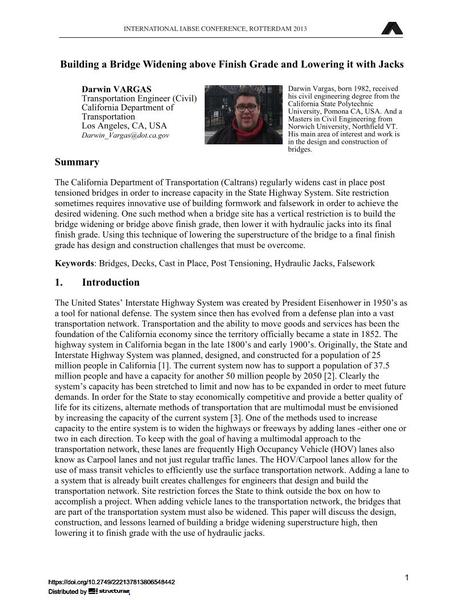Building a Bridge Widening above Finish Grade and Lowering it with Jacks

|
|
|||||||||||
Bibliographic Details
| Author(s): |
Darwin Vargas
|
||||
|---|---|---|---|---|---|
| Medium: | conference paper | ||||
| Language(s): | English | ||||
| Conference: | IABSE Conference: Assessment, Upgrading and Refurbishment of Infrastructures, Rotterdam, The Netherlands, 6-8 May 2013 | ||||
| Published in: | IABSE Conference, Rotterdam, May 2013 | ||||
|
|||||
| Page(s): | 594-595 | ||||
| Total no. of pages: | 8 | ||||
| Year: | 2013 | ||||
| DOI: | 10.2749/222137813806548442 | ||||
| Abstract: |
Darwin Vargas, born 1982, received his civil engineering degree from the California State Polytechnic University, Pomona CA, USA. And a Masters in Civil Engineering from Norwich University, Northfield VT. His main area of interest and work is in the design and construction of bridges. The California Department of Transportation (Caltrans) regularly widens cast in place post tensioned bridges in order to increase capacity in the State Highway System. Site restriction sometimes requires innovative use of building formwork and falsework in order to achieve the desired widening. One such method when a bridge site has a vertical restriction is to build the bridge widening or bridge above finish grade, then lower it with hydraulic jacks into its final finish grade. Using this technique of lowering the superstructure of the bridge to a final finish grade has design and construction challenges that must be overcome. |
||||
| Keywords: |
bridges falsework post-tensioning decks Cast in Place Hydraulic Jacks
|
||||
